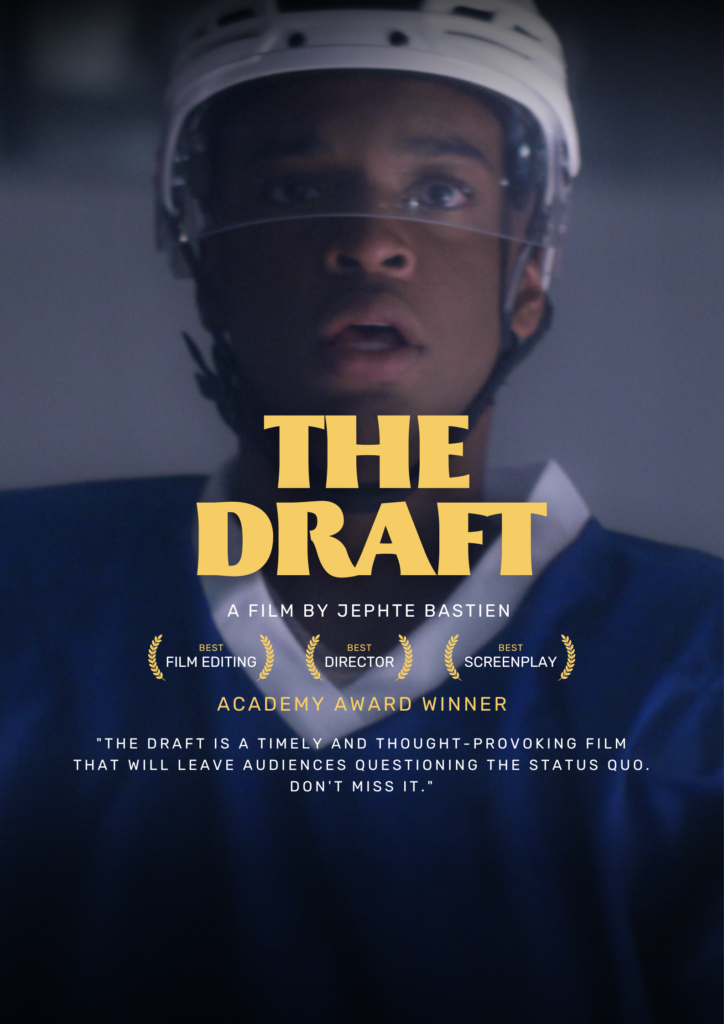In the music business, it used to be that simple. Watch the veterans make the stew and repeat for yourself. The formulas and ingredients were pretty well defined and the outcomes predictable. This past week, rock legend Gene Simmons gave an interview that all but declared to the starving and upcoming artist to not quit their day job. I can’t say I disagree with his statements in the article. It’s been proven to me over and over again that the music industry’s music-stew is not repeatable any more. The problem is, the ingredients are essentially the same, but the way they are cooked is completely different now.
Most recipes have an order or priority when adding ingredients. They are sometimes laid out in a particular order because it makes the end meal taste better. In the case of music, the order isn’t always as critical as the time needed to prepare and cook the meal.
TIMING
One of the most frustrating parts of being an artist today is understanding that timing is everything. No matter how much talent, charisma, good looks, or whatever other ingredient you may think is important, timing is the one thing that trumps everything. Market niche or the need for what an artist is making will dictate how much attention people give to the music being made.
DEMAND
Much like any product in the free market, music has various levels of demand. Imagine a mom and pop corner grocery store. The size and level of inventory will be suited to their local town. They stock enough to keep up with the local demand. It’s because they know the customers they serve have a broader requirement for various ingredients for their food needs. The same applies to music. If an artist is serving a local area well, the demand may seem big. But on a larger scale, their product will likely get lost on the shelves of the consumer’s favorite store. Creating demand for your music is difficult and most artists get discouraged long before they make it from local celebrity at the mom-n-pop mart into a larger super-store.
TALENT
This is probably the most obvious ingredient on the list, but one that is so completely misunderstood. Talent is a broad description mostly pigeon-holed into the artist’s skill of voice or instrumentation. However, talent is a much bigger ingredient because it can encompass things like stage presence, audience connection, dance, songwriting, etc. g. Instead of giving my personal definition of talent, it’s enough to say that a total package evaluation of an artist is a better definition of talent and will allow more people to endorse the artist if we accept the diversity of perspectives.
IMAGE / BRAND
The appearance and what an artist talks about and stands for can all be critical in maximizing success. Knowing your platform and what makes you stand out among the competition regarding your image is very important. Too many artists get obsessed with trying to replicate what is already popular in the music scene. You hear songs that sound the same, hairstyles that look the same, clothing that represents the culture of the scene they’re trying to impact. The consumer of music likes originality, but also likes something they already are familiar with.
EXPERIENCE
There’s no substitute for experience. I’m not talking just the amount of preparation you’ve put in for rehearsal. I’m not talking the amount of shows you’ve done necessarily. I’m talking how you’ve weathered the storm of the life of an artist. How many gigs went wrong and you overcame and still did the show? How many times were you rejected by the industry executive you thought for sure would sign you up or put you on a tour? How many times have you read reviews or comments online that make you out to be a joke for an artist, yet you still keep trying? This kind of experience is flavoring that give your music and artistry it’s reliability. Labels and venue owners as well as consumers of music all can tell when your experience is at a level of professionalism.
WORK ETHIC
An artist who is not recklessly working, but organized and committed to a disciplined routine of practice and getting better will successful. It will show in everything they say and do on and off stage. People around them and observers afar will know that they’re not dabbling or kidding around.
FINANCES / RESOURCES
Sorry to say, but the fairy tale of being swept off your feet by a prince-charming record label is just that, a fairy tale. Even those who have been signed by a major label often realize they are paying in the long run and not just getting free money with their signing bonus. Even without a sugar-daddy label to bolster your success, it takes serious, serious money and resources to launch and sustain a career. Money and calendar time are essential if you’re going to want to get exposure and continue to develop. It’s not just playing gigs or paying for studio time. It’s also the endless need to constantly network with other artists and industry people so your reputation and skill can be discovered when the time is right. This takes money and time.
MENTORS / ADVISORS
This is often overlooked or often taken too seriously by some artists. Listening to the advice of experienced artists can taint you or save you a ton of regrets. It’s a very necessary and very frustrating balance to have mentors and advisors. As an artist continues their process of becoming known, they will figure out personalities along the way and avoid the sharks and find the trustworthy allies who will help them succeed.
FAN CONNECTION
With social media today, this is easier than it has ever been. It’s also a faster way to know how to hone your craft to please your fan base. Some artists are too stubborn to listen to fan demand because they are stuck in the artistic and creative world. Some are like pollen in the spring time and blow in whatever direction the fan-winds decide to go. Both are extremes, but one truth is that in our reality-TV generation, fans want to know the person behind the artist now more than ever before. They want to know what’s behind the song and that requires a tighter connection with fans. As an artist gets more popular, so does the need to create intentional fan moments. Publicists often take over this area at some point, but as long as social media is a viable path, an artist always has a pipeline directly to their fan base.
KNOWING YOUR STRENGTHS AND WEAKNESSES
For an artist to truly break out of smallville, they must know what they are personally good at doing and find a way to delegate the rest to a team around them. This requires trust and knowledge. It’s not advisable to delegate something you don’t have a firm understanding about like booking a show, how the contracts work, the revenues and expenses of being an artist, the selecting of a producer, song-writing, or whatever. All these areas are essential in success in the music business but there are only 24 hours in a day and hopefully a portion of that is spent getting rest. Delegating responsibilities is important. It’s as important as a CEO not trying to answer phones on the front desk. At some point, the easy work or repetitive work should be turned over to someone who is good at it and can free you up to focus on the areas that you are best at. The only way you will discover your strengths and weaknesses is to experience doing everything you are capable of doing and then taking an inventory of what you should or shouldn’t continue doing when the opportunity for delegating becomes real.
RECORD SALES & RADIO PLAY
Sadly, the path to record sales and getting on radio is like a vicious circle chase. It’s often a chicken and the egg dilemma. It takes radio to get record sales. It takes record sales to get radio. It takes a lot of show dates to get exposure… to get legit fans… to which radio reaches… to which buy the music… which drives the SOUNDSCAN reports… which tells larger market radio stations to take you serious, etc. This part of the process has never changed from the beginning. There are gatekeepers at major labels, smaller labels and in between that care about these two aspects more than anything else. Emerging artists know this all too well and it’s a nightmare cycle to get stuck in. Even hitting radio doesn’t equate record sales or visa-versa. It’s complicated, but a vital ingredient in success.
FLEXIBILITY
Sometimes an artist thinks they have the right song, right live show, right amount of fans, right venues, right advisors, some cash coming in, right amount of exposure, but nothing’s happening. Nobody is calling to sign them or ask them to tour with a major artist. This is where flexibility comes in. It’s what an artist needs to do to get over the hump of being a potential artist to being a widely known one. Sometimes flexibility means to temporarily stop pushing so hard and let the hard work permeate the music landscape for a little while. Sometimes it means stepping back 4 or 5 levels and playing a coffee house and getting back to your roots. Sometimes it means taking a sabbatical and focusing on something else for a season (however long) to revive your perspective. Sometimes it means accepting an offer to play a gig you’d normally ignore. Sometimes it means recording a song you’d normally not do. Sometimes it means hiring a helper you don’t think you need or can afford. Grinding in the music industry is physically, mentally, and emotionally difficult. Being flexible to break routine is important. Being able to adjust to do things differently from time to time is often the epiphany needed for that breakthrough you’ve always hoped for.
INDUSTRY TERMS AND PROCESSES
If an artist is to ever truly succeed, they will at some point need to understand the moving parts of the music industry. Knowing how radio works, how to work in a studio environment with professionals, how live venues book artists, how royalties and revenue streams work, how a publishing deal works, etc. are all critical for an artist to truly understand if they are to be successful. It will avoid a ton of regret and starting over if you can gain as much knowledge as possible early on. I’m sure my list could continue with words like passion, commitment, opportunity, networking, etc. Depending on your end-game, success is something you should never declare for yourself. Never be satisfied with the level you’re at for too long because it will disappear over time and you’ll find yourself getting hungry again. The ability for you to continue to adapt and adjust in the music industry is critical if you are to survive.


 Business3 years ago
Business3 years ago
 Business2 years ago
Business2 years ago
 Business2 years ago
Business2 years ago
 Business3 years ago
Business3 years ago
 Business3 years ago
Business3 years ago
 Business3 years ago
Business3 years ago
 Business3 years ago
Business3 years ago
 Business3 years ago
Business3 years ago





































